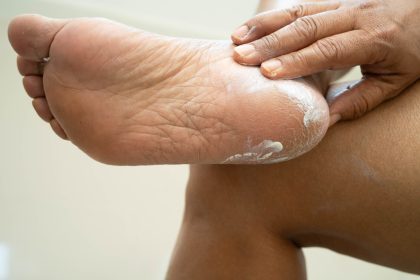Science confirms chronic stress accelerates visible aging process

The stress-skin connection
Recent studies have confirmed what many had already suspected. Chronic stress significantly accelerates the visible aging process. This new research brings to light a connection that has long been overlooked, illustrating how mental and emotional stress can directly affect the appearance of our skin. Modern dermatological research reveals that stress doesn’t just contribute to a feeling of tiredness or anxiety; it also plays a significant role in how we look and feel.
Understanding the biology
Stress triggers a series of complex physiological responses that influence the way skin ages. When stress levels remain high over an extended period, the body releases increased levels of cortisol, commonly referred to as the stress hormone. While cortisol is essential for the body’s fight-or-flight response, prolonged exposure to it can have a damaging effect on the skin. Cortisol accelerates the breakdown of collagen, a key protein that helps maintain skin elasticity. When collagen is degraded, the skin becomes more prone to sagging, wrinkles, and other visible signs of aging.
Also, chronic stress impairs the skin’s barrier function, weakening its ability to retain moisture and protect itself from external aggressors like pollution and UV rays. This dual action of collagen breakdown and compromised barrier function accelerates the visible effects of aging.
Beyond surface level
While the outward signs of stress on the skin, like wrinkles and fine lines, are immediately noticeable, the impact goes much deeper than what is visible on the surface. Chronic stress affects the skin’s natural regenerative processes, including its ability to repair itself after damage. Stress-induced hormone fluctuations disrupt skin regeneration, resulting in slower healing times and an increased risk of conditions like acne, eczema, and psoriasis. As skin loses its elasticity and strength, it becomes more vulnerable to environmental stressors like pollution, UV rays, and harsh weather conditions.
Moreover, stress can lead to dehydration, a common cause of dryness and irritation in the skin. When the skin is unable to hold onto moisture, it appears dull, tired, and lifeless. Stress also triggers the inflammatory process in the body, which can worsen skin conditions like rosacea or increase the likelihood of acne breakouts.
Prevention strategies
Given the undeniable link between stress and skin aging, it’s crucial to implement proactive measures to minimize its impact. One of the most effective strategies involves adopting a holistic approach that includes both skincare and stress management practices. While skincare routines alone can improve the skin’s appearance, managing stress is equally important for maintaining a youthful complexion.
Proper nutrition plays a significant role in combating the negative effects of stress on the skin. Eating a balanced diet rich in antioxidants, vitamins, and minerals can help fight the damage caused by free radicals, which are byproducts of stress. A diet high in omega-3 fatty acids, for example, can help reduce inflammation and support the skin’s barrier function.
Getting enough sleep is another key factor in managing stress and preventing skin aging. During deep sleep, the body goes into repair mode, replenishing skin cells and restoring elasticity. Lack of sleep, on the other hand, not only worsens the effects of stress but also leads to a dull, tired complexion.
Stress management techniques are crucial for reducing the damaging impact on the skin. Meditation, mindfulness, and deep-breathing exercises can reduce cortisol levels and calm the nervous system. Regular physical activity, such as yoga or walking, also helps lower stress and increase circulation, promoting healthier skin.
Treatment innovations
Alongside these preventative measures, the skincare industry has embraced new treatment innovations to address the stress-induced aging of the skin. Many dermatologists now recommend incorporating treatments that target both the visible signs of aging and the internal mechanisms that contribute to skin deterioration. This may include treatments like microdermabrasion, which helps remove dead skin cells and promote collagen production, or chemical peels that assist in skin regeneration.
Emerging technologies, like light therapy and radiofrequency treatments, are gaining popularity for their ability to stimulate collagen production and restore skin elasticity. These non-invasive procedures offer targeted results, reducing the appearance of fine lines and wrinkles caused by stress while boosting the skin’s overall vitality.
Lifestyle integration
Taking a holistic approach to preventing stress-related skin aging involves addressing both internal and external factors that impact skin health. Beyond diet and sleep, integrating regular physical exercise into your routine can significantly improve skin health. Exercise increases blood flow, which delivers more oxygen and nutrients to the skin, promoting a healthier and more youthful appearance. It also helps reduce the effects of stress by releasing endorphins, the body’s natural mood elevators.
Additionally, creating a self-care routine that includes stress-reducing activities like journaling, aromatherapy, or even simple moments of quiet reflection can help balance emotional well-being and skin health. Taking time each day to unwind and destress, even in small increments, can help mitigate the long-term effects of chronic stress on the skin.
Future perspectives
As research into the connection between stress and skin aging continues to evolve, the future of skincare looks increasingly focused on understanding and addressing the psychological factors that impact skin health. Dermatologists are emphasizing the importance of stress management as part of a comprehensive approach to skincare, with new treatments and products emerging that are specifically designed to protect the skin from the harmful effects of stress.
Innovative skincare products that incorporate ingredients like adaptogens, which help the body cope with stress, are becoming more widely available. These products work in synergy with the body’s natural healing processes, offering both protection and repair.
Looking ahead, we can expect more breakthroughs in the skincare industry that combine mental well-being and physical care. Understanding how stress accelerates the aging process is just the beginning—future treatments and products will likely continue to evolve, offering better ways to prevent and reverse the visible signs of stress-related skin aging.
Conclusion
It’s clear that the relationship between stress and skin aging is profound, and the science is only beginning to reveal the full extent of its impact. While we may not be able to eliminate stress from our lives entirely, we can take steps to mitigate its effects on our skin by adopting a holistic approach to skincare and self-care. As research advances, it’s becoming more evident that managing stress is just as important as applying the right serums or moisturizers. By taking care of both our emotional and physical health, we can protect our skin from the inevitable signs of aging and keep our complexions looking youthful and vibrant for years to come.















